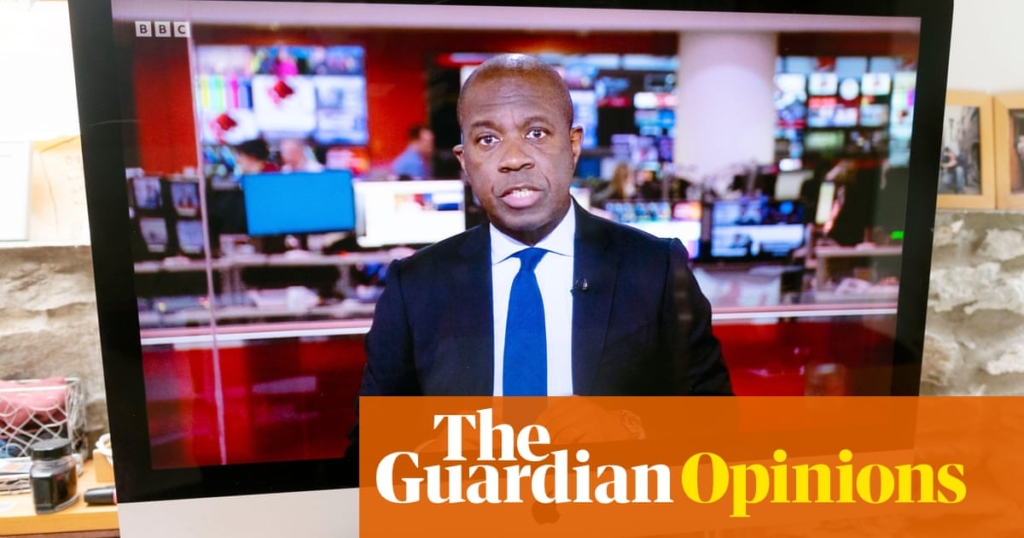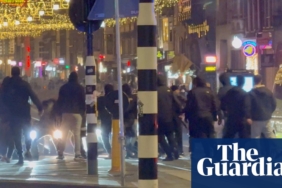Bu içerikte, günümüzde artan haber kaçınma eğiliminden ve bu durumun demokrasiye olan tehdidinden bahsedilmektedir. Haberlerin sıkıcı, bıktırıcı veya depresif bulunması, haber yüklenmesi, dijital dikkat dağıtıcılar gibi faktörler nedeniyle insanların haberlere olan ilgisizliği artmaktadır. Bunun sonucunda popülist siyasetçiler ve zengin iş insanlarının, geleneksel medyayı atlayarak manipülatif kampanyalar yürüterek seçmenleri etkileme olasılığı artmaktadır. Haber medyasının bu duruma yanıtı ise daha fazla içerik üretmek olmuştur. Ancak, bu durum daha fazla gürültüye ve dikkat dağıtıcı uyarılara neden olmaktadır. Yazar, haber kaçınmanın önüne geçmek için gazetecilere yedi maddelik bir plan önermektedir. Sonuç olarak, doğru, gerçeklere dayalı ve toplumla etkileşim içinde olan haberlerin demokrasinin temel taşlarından biri olduğu vurgulanmaktadır. Yazar, insanlara haberlere olan ilgilerini koruma çağrısı yapmakta ve daha sağlıklı bir yeni yıl dilemektedir.
[ad 1]
Kaynak: www.theguardian.com
The other night I broke a long-cherished habit. At home in time for the BBC News at 10, I could only manage a couple of headlines before I turned it off, flicking through the channels instead for something that would make me smile, a comedy or anything about dogs.
News of the torture and murder of a little girl, followed by reports from yet another seemingly intractable conflict, had turned me into one of the biggest threats to my own profession, if not democracy – I had become a news avoider.
News avoidance around the world is at an all-time high, and growing. At the start of this year, almost four in 10 (39%) people admitted that they sometimes or often actively avoided the news, up from 29% in 2018. Researchers at Oxford University’s Reuters Institute heard from respondents that the news is too “depressing”, “relentless” or “boring” for them.
For some, news overload is to blame. A world not so long ago marked by a handful of selected updates has been replaced by rolling news alerts and notifications. My left hand has grown a phone extension on which my right is constantly doomscrolling. Seemingly solutionless and complicated problems – whether wars in the Middle East or the climate catastrophe – combined with our always-on devices mean more and more people are seeking to protect their mental health by turning away from these stories in favour of content on social media.
Others, a far larger group, tell researchers that the news is no longer for people like them. Where once many of these people would have kept their televisions on after their favourite soap or gameshow, perhaps catching the 6 o’clock news in the process, now the ability to stream entertainment at any time cuts off this avenue for awareness. The tabloid newspapers that once best served large parts of the UK are now no longer such a power in the land, their reach diminished amid a cacophony of new social media platforms. More and more people globally are becoming “news outsiders” or even “unnewsed”.
None of this is particularly new. But it is dangerous. In 2024, a year in which more than half of the world’s population went to the polls, populist politicians and billionaire businessmen proved themselves adept at bypassing traditional media scrutiny. In Romania, an unknown far-right politician, who didn’t even make it into the top five of most pre-vote opinion polls, won the first round of presidential elections after using Tiktok and other networks coordinated on Telegram to foment fears about immigrants and conscription. The result is now annulled amid reports of Russian disinformation agents at work.
Faced with an economic model in disarray, the news media’s response has essentially been to do more, create more and deliver it in more ways than ever: newsletters, news in brief, podcasts, videos or even more deep dives and explainers. Some of this is exciting and innovative – witness the new rush of start-ups seeking to fill the void left by local news providers in London. But the overarching effect of a flooded news environment is more noise.
One tiny example is provided by the increasing number of alerts we are bombarded with. Nic Newman, the lead author of the Reuters Digital News Report, who as a former BBC head of product was involved at the start of its digital alert systems, remembers when alerts were limited to a handful each week for the most important matters. After proving a popular way of encouraging clicks, they are now sent all the time and deal with subjects as cataclysmic as a TV series ending.
So what can be done? This year Newman and his team came up with a handy seven-point plan for journalists to counter news avoidance, including producing news that is understandable, useful and relatable. Increasing demand for news you can consume on the move has encouraged podcasts that offer news delivered as entertainment, a demand long exploited by television shows such as The Daily Show in the US and Have I Got News for You in the UK.
Despite innovations in journalism, it is hard not to feel that our interest in the news has been corrupted by an algorithmic race to the bottom in an age of increasing digital distraction. Opinion and entertainment simply provide bigger dopamine hits than straight facts. Many of the new offerings, such as Substack posts, are also behind paywalls, leading to even greater fears of the divide between the information haves and have-nots. The dystopian end result of this could be a world in which those who can afford it are superserved with facts and information while the majority of those who cannot, or will not, pay are prey to bad actors bankrolled by potentially shadowy sources.
Before we start to mourn the end of the news, let’s stop and consider why we all need to fight for the survival of one of the key pillars of democracy. Just listen to international war crimes investigator Bill Wiley on Radio 4’s Today programme stressing the importance of evidence found by journalists in Syria. In a world of so much uncertainty and a sense of overwhelming powerlessness, accurate, fact-based news that engages with communities – whether local or global – has never been more important. Find time this Christmas to get into new news habits. I’m planning to – so let me know your best advice. Turning the news off is not the answer. Here’s hoping for a happier and healthier new year.







Yorumlar kapalı.